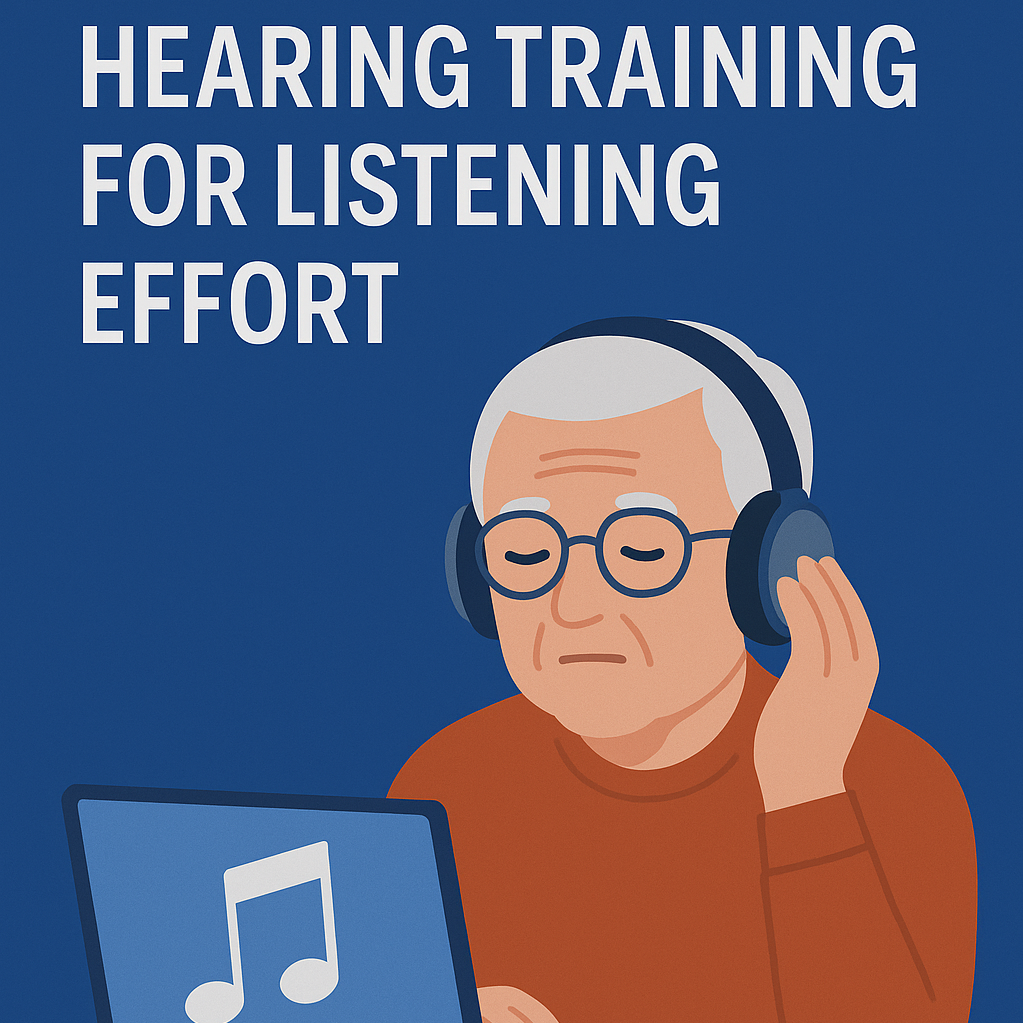New Study Shows Computer-Based Hearing Training Can Reduce Listening Effort
A new pilot study published in Audiology Research has found that individualized, computer-based auditory training may help older adults improve concentration, processing speed, and listening comfort—even before hearing aids are fitted.
The study, led by Dominik Péus and colleagues, explored whether Computer-Based Cognitive Auditory Training (CCAT) can ease the cognitive strain often associated with listening in noisy environments. Hearing and cognition are closely linked, and untreated hearing loss is now recognised as an independent risk factor for later cognitive decline. Researchers are therefore investigating whether targeted auditory training could strengthen both listening and cognitive performance.
Study design
Twenty-three adults aged 52 to 77 years, with normal to moderate hearing loss and not yet using hearing aids, completed 40 home-based CCAT sessions. Participants were assessed before, during, and after training using a wide range of cognitive and auditory measures, including:
- Concentration and processing speed (d2-R test)
- Memory performance (VLMT)
- Subjective hearing handicap (HHI)
- Perceived sound quality (SSQ12)
- Listening effort and speech understanding in noise (ACALES, GÖSA)
Key findings
After completing the training, participants showed statistically significant improvements in processing speed (+12.11 points, p=0.006), concentration performance (+12.56 points, p=0.001), and learning ability (+4.00 points, p=0.019).
Subjective hearing handicap decreased significantly by 10.7 points (p=0.001), and listening effort improved by up to 3.3 dB SPL across different noise levels (all p ≤ 0.001). Although overall speech understanding in noise did not significantly change, the observed improvements suggest that CCAT enhances listening efficiency and cognitive readiness, rather than auditory thresholds themselves.
Why this matters
These findings point toward a promising role for digital hearing training as an early or adjunctive intervention—especially for adults beginning to experience listening fatigue or communication difficulties before hearing aid fitting.
At Hashir International Institute and The Hearing Well Practice, we recognise that listening effort reflects both sensory and cognitive factors. This study supports the idea that structured auditory–cognitive exercises can strengthen the brain’s listening networks and reduce fatigue, even without amplification.
Future controlled trials will help determine how such training might complement conventional hearing aid use and Cognitive Behavioural Therapy (CBT) approaches for managing listening effort, tinnitus, and sound intolerance.
Full citation
Péus, D., Schmid, J.-P., Koj, A., Radeloff, A., & Schulte, M. (2025). Increased Listening Effort: Is Hearing Training a Solution? Results of a Pilot Study on Individualized Computer-Based Auditory Training in Subjects Not (Yet) Fitted with Hearing Aids. Audiology Research, 15(5), 124. https://doi.org/10.3390/audiolres15050124
